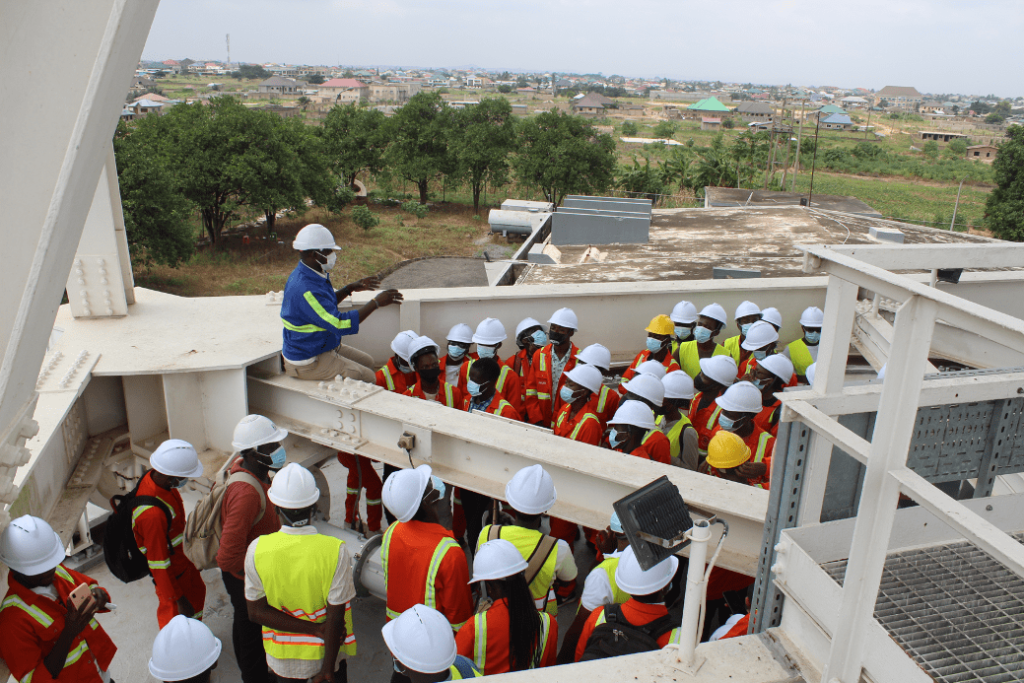- What is the purpose of the national space policy?
The national space policy outlines the country’s strategic vision and objectives concerning space exploration, research, development, and utilization. It serves as a roadmap to guide the nation’s activities in space, including promoting national security, advancing scientific knowledge, and fostering commercial space endeavors.
- Who was responsible for developing the national space policy?
The national space policy was developed by collaborating with government agencies, space research institutions, experts, and policymakers. The process involved inputs from various stakeholders to ensure a comprehensive and well-rounded policy. MESTI held various consultations with the relevant stakeholders, including Ministry of Communication, Ministry of Food and Agriculture, Ministry of Defense, Ministry of Finance, universities, research institutions, industrialists and other private sector actors. Space Science and Technology (SST) users such as the Ghana Space Science and Technology Institute, National Disaster Management Organization, National Communication Authority, Council for Scientific and Industrial Research, Energy Commission, Ghana Ports and Harbours Authority, Ghana Meteorological Agency, Ghana Maritime Authority and Telecommunication companies were also consulted for their inputs. All comments and inputs have been factored in the Memorandum.
- What are the key components of the national space policy?
Background: This section provides an overview of the strategic importance of space science and technology for Ghana’s socio-economic development and highlights the country’s past efforts and achievements in the field.
Current Space Science and Technology Activities in Ghana: This section presents a comprehensive list of ongoing space science and technology activities in the country, covering various institutions and their focus areas, achievements, and projections.
Rationale for a National Space Policy: This section explains the need for a coordinated and monitored space science and technology program in Ghana, emphasizing the potential benefits, international cooperation, peace and security, economic growth, and contributions towards the Sustainable Development Goals (SDGs).
Policy Goal and Objectives: The policy’s overarching goal is to guide the use and development of space science and technology for national technological advancement towards sustainable development. The listed objectives specify the specific outcomes the policy aims to achieve.
Policy Strategies: This section outlines the key strategies that will be employed to achieve the policy’s objectives, including the establishment of a Ghana Space Agency, space education and human resource development, space infrastructure development, promotion of space science research and development, commercialization of space products, collaboration with local and international organizations, legal and regulatory framework establishment, and space science outreach and awareness.
Financing of Space Science and Technology: This section highlights the importance of adequate funding for space activities and outlines the financial mechanisms, including allocating a percentage of GDP for SST activities and establishing an SST development fund.
Implementation and Coordination: This section outlines the steps for policy implementation, including communication, launch, and coordination through the Ministry of Science, Technology, and Innovation, with periodic evaluations and potential revisions after ten years of implementation.
- How will the national space policy benefit the country and its citizens?
The national space policy aims to bring several benefits, including:
- Advancement of scientific knowledge: Space exploration leads to new discoveries and technologies that have practical applications on Earth.
- Economic growth: Encouraging commercial space activities will drive innovation, create jobs, and boost economic growth.
- National security: Ensuring the country’s space assets are protected and promoting capabilities to address space-related security threats.
- International standing: Active participation in space activities enhances a country’s reputation and strengthens diplomatic ties with other nations.
- Inspiring the next generation: Space exploration serves as a powerful source of inspiration, encouraging students to pursue careers in science, technology, engineering, and mathematics (STEM).
- How will the national space policy promote international collaboration in space exploration?
The national space policy outlines the country’s commitment to international partnerships and collaborations in space missions, research, and technology development. This includes joint missions with other nations, sharing scientific data, and participating in international forums to discuss space-related issues.
- How will the national space policy encourage private sector participation in space ventures?
The national space policy outlines a roadmap for creating a favourable regulatory environment to encourage private companies to invest in space-related activities. This shall involve streamlining licensing processes, offering incentives, and fostering public-private partnerships to promote innovation and commercial space ventures.
- How can citizens get involved in space-related activities and support the national space policy goals?
Citizens can support the national space policy by staying informed about space developments, advocating for space exploration and research funding, participating in STEM education programs, and encouraging their representatives to prioritize space-related initiatives.












